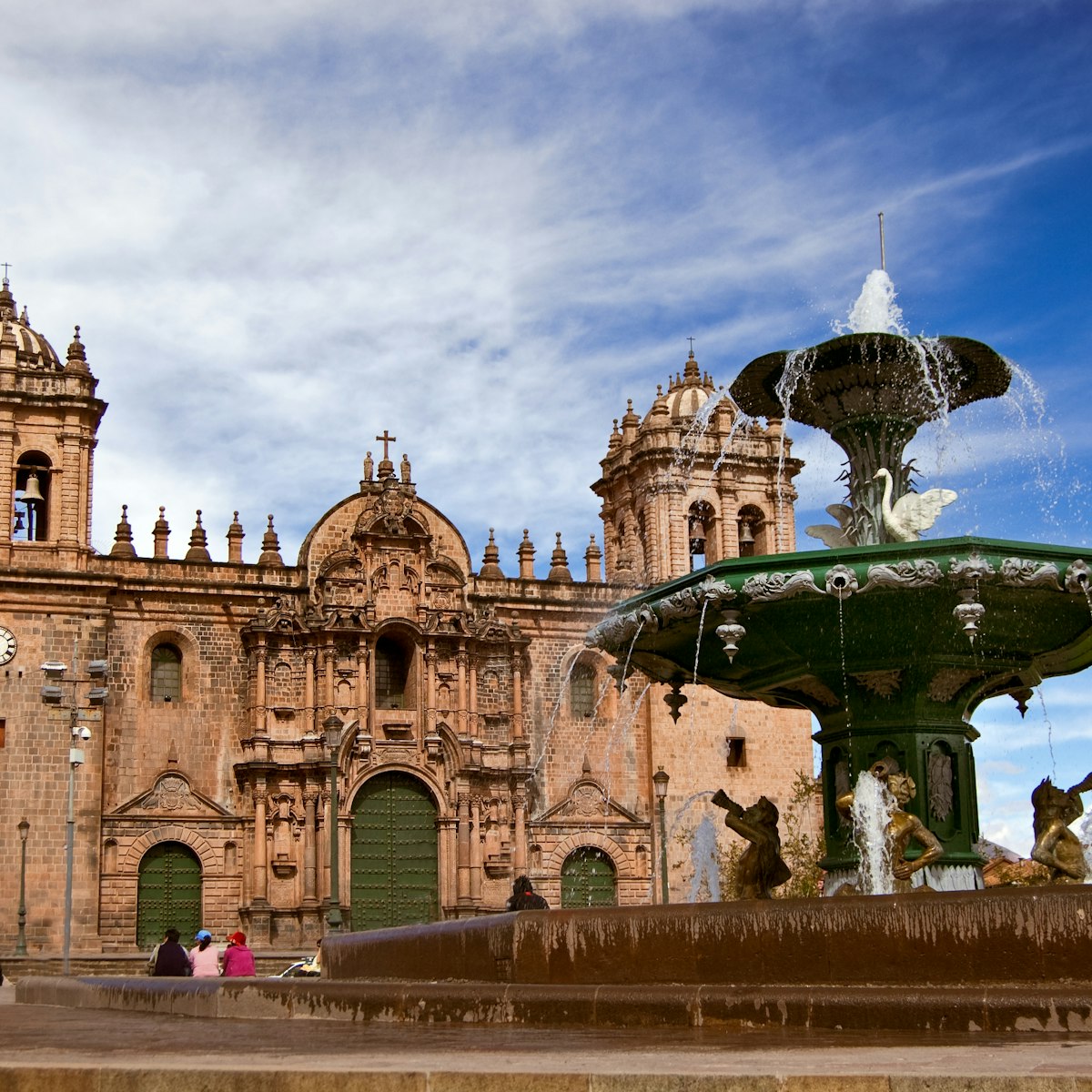A truly awesome site with relatively few tourists, this hilltop Inca citadel lies high above the village on a triangular plateau with a plunging gorge on either side. Allow several hours to explore. Taking a taxi up and walking back (4km) is a good option. The most impressive feature is the agricultural terracing, which sweeps around the south and east flanks of the mountain in huge and graceful curves, almost entirely unbroken by steps.
Instead, the terracing is joined by diagonal flights of stairs made of flagstones set into the terrace walls. Above the terraces are cliff-hugging footpaths, watched over by caracara falcons and well defended by massive stone doorways, steep stairs and a short tunnel carved out of the rock. Vendors sell drinks at the top.
This dominating site guards not only the Urubamba Valley below, but also a pass leading into the jungle to the northeast. Topping the terraces is the site’s ceremonial center, with an intihuatana (literally ‘hitching post of the sun’; an Inca astronomical tool), several working water channels, and some painstakingly neat masonry in the well-preserved temples. A path leads up the hillside to a series of ceremonial baths and around to the military area. Looking across the Kitamayo Gorge from the back of the site, you’ll also see hundreds of holes honeycombing the cliff wall. These are Inca tombs that were plundered by huaqueros (grave robbers), and are now completely off-limits to tourists.
At the time of writing, the trail starting above the west side of the church in town was closed. Check for updates in Pisac. When it's open, it’s a two-hour climb and 1½ hours return. Worthwhile but grueling, it's good training for the Inca Trail! The footpath has many crisscrossing trails, but if you aim toward the terracing, you won’t get lost. To the west, or the left of the hill as you climb up on the footpath, is the Río Kitamayo Gorge; to the east, or right, is the Río Chongo Valley.


